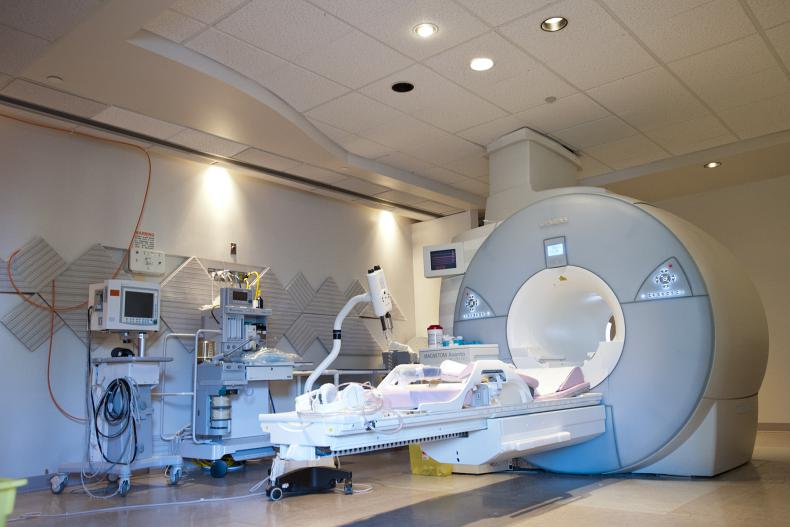
Prostate cancer screening scan hope
A blood test, called PSA, can check for high levels of a protein that can sometimes indicate that the person might have prostate cancer, but it is not always accurate.
About three in four men with a raised PSA level will not have cancer and the test can also miss more than one in 10 cancers.
Men with a raised PSA may need more checks, such as a biopsy. This involves taking small samples of tissue from the prostate gland, using a needle, so that they can be examined under the microscope.
In some cases, this can miss a cancer that is there, fail to spot whether it is aggressive, and cause side-effects, including bleeding, serious infections and erectile dysfunction.
MRI is non-invasive. It might be a way to make prostate cancer testing more reliable and maybe even do away with the need for biopsies altogether, researchers hope.
A recent UK trial in men with high PSA levels showed more than a quarter could be spared invasive biopsies.
The experts who are running the screening trial hope MRI will detect serious cancers earlier while reassuring the majority of men that they don't have cancer. Men found to have possible signs of cancer on the scan would be sent for more tests.
The chances of developing prostate cancer increase with age. Most cases develop in men aged 50 or older.
Men whose father or brother was affected by prostate cancer are at slightly increased risk themselves.
For many men with prostate cancer, treatment is not immediately necessary - doctors may suggest watchful waiting or surveillance.
More aggressive prostate cancer will need immediate treatment, which includes surgery and radiotherapy.
This new test is potentially an exciting development that the NHS will look at as more evidence becomes available.
Karen Stalbow, from Prostate Cancer UK, said: "This trial could provide an exciting step towards our ambition for a national screening program to get early prostate cancer diagnosis that can save more lives.
"If the results are positive, then MRI scanning could offer a non-invasive first stage of prostate cancer diagnosis in the future.
 English
English Arabic
Arabic


